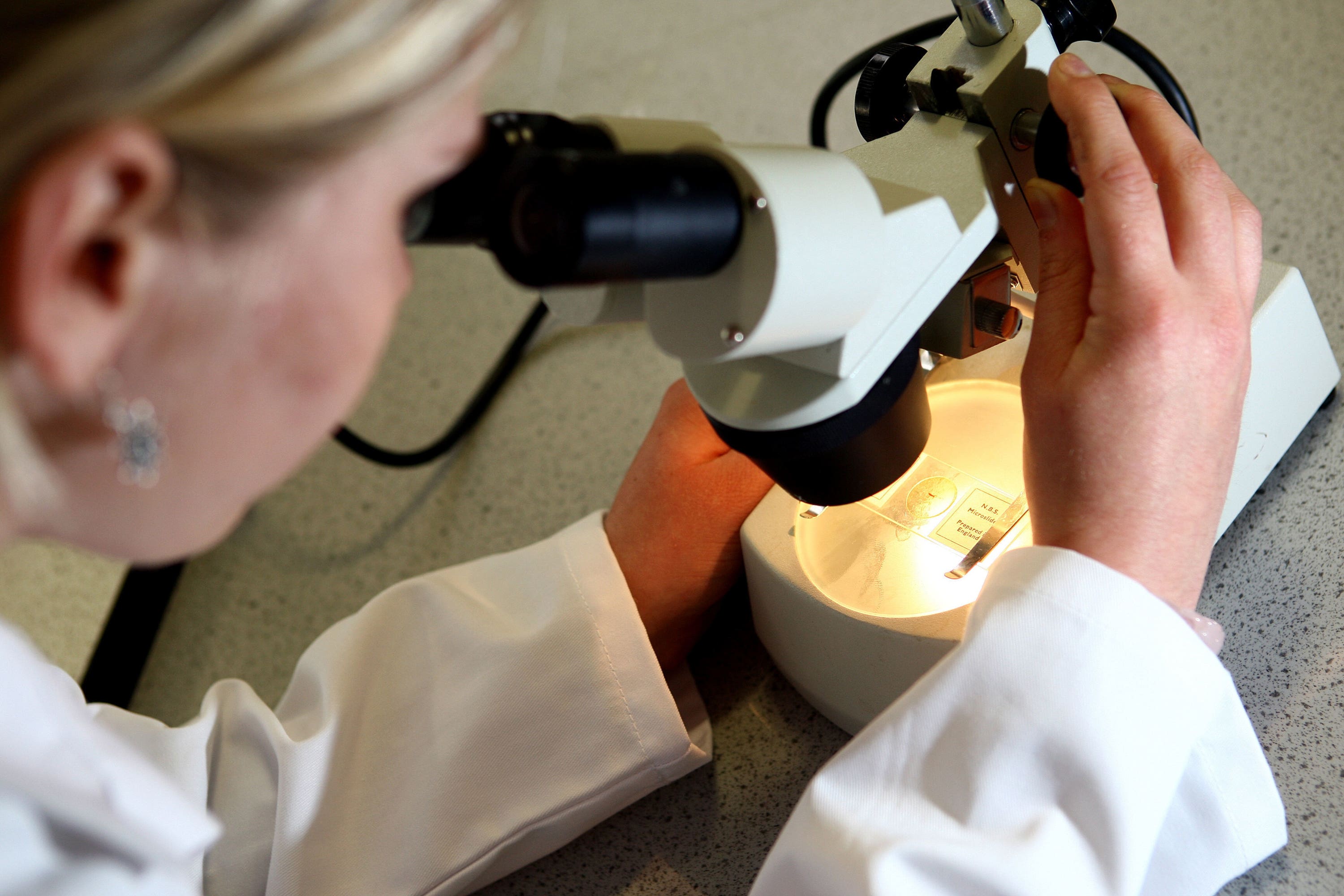Robotic sample processor ‘could help diagnose cancer faster’
The new system is expected to be in place with The Royal Marsden NHS Foundation Trust by 2024.

Your support helps us to tell the story
From reproductive rights to climate change to Big Tech, The Independent is on the ground when the story is developing. Whether it's investigating the financials of Elon Musk's pro-Trump PAC or producing our latest documentary, 'The A Word', which shines a light on the American women fighting for reproductive rights, we know how important it is to parse out the facts from the messaging.
At such a critical moment in US history, we need reporters on the ground. Your donation allows us to keep sending journalists to speak to both sides of the story.
The Independent is trusted by Americans across the entire political spectrum. And unlike many other quality news outlets, we choose not to lock Americans out of our reporting and analysis with paywalls. We believe quality journalism should be available to everyone, paid for by those who can afford it.
Your support makes all the difference.A robotic platform that helps process DNA samples could lead to faster cancer diagnoses and personalised treatment for patients.
Automation company Automata has joined forces with The Royal Marsden NHS Foundation Trust, which has hospitals in London and Surrey.
With the company’s support, the trust’s clinical genomics service – a cancer testing laboratory for the North Thames Genomics Laboratory Hub (NTGLH) – will double its next-generation sequencing (NGS) capacity by around 2,000 tests per month through a new robotic sample processing platform.
NGS allows scientists to analyse DNA and RNA sequences for doctors to personalise treatments on a larger scale.
It will also allow The Royal Marsden to expand the range of tests it can perform.
The installation is expected to be completed by 2024 and will be housed at the National Institute for Health and Care Research (NIHR) Centre for Molecular Pathology in Sutton, Surrey.
Known as LINQ, the platform features a laboratory ‘smart bench’, with integrated automation features and accompanying software.
Its use can boost efficiency and accuracy and does not need additional lab space for equipment.
Once opened, the facility will enable us to analyse the genetic make-up of more cancers than ever before, helping us to target cancer treatments and identity those at higher risk of the disease
It will primarily identify those at risk of cancer based on inherited genetic mutations such as the BRCA gene, which can heighten the risk of breast, ovarian, pancreatic and prostate cancer.
The service will also look at the CHEK2 gene, which can lead to the development of breast, colon and rectal cancers.
Patients identified through the tests will be closely monitored in order to pick up signs of the disease in its early stages and, in some cases, preventative treatment could be offered.
Professor Michael Hubank is scientific director of clinical genomics at The Royal Marsden NHS Foundation Trust and professor of translational genomics at the Institute of Cancer Research in London.
He said the partnership will “transform genomic testing at The Royal Marsden” by streamlining processes and upping capacity “without compromising accuracy”.
He said: “Once opened, the facility will enable us to analyse the genetic make-up of more cancers than ever before, helping us to target cancer treatments and identity those at higher risk of the disease.
“Genomic testing is currently labour intensive and involves repetitive tasks, so fully automating the process will give our scientists and technicians more time to focus on quality and on the scientific aspects of their important work.”
Neal Parker, strategic account director at Automata, said: “The insights and information that genomics testing provides, empower doctors and patients to make the right decisions for therapy.
“As well as the increased capacity, scientists in the laboratory now have more walk-away time to spend on analysis and research.”
The project was funded by the NIHR Biomedical Research Centre at The Royal Marsden, The Institute of Cancer Research and The Royal Marsden Cancer Charity.